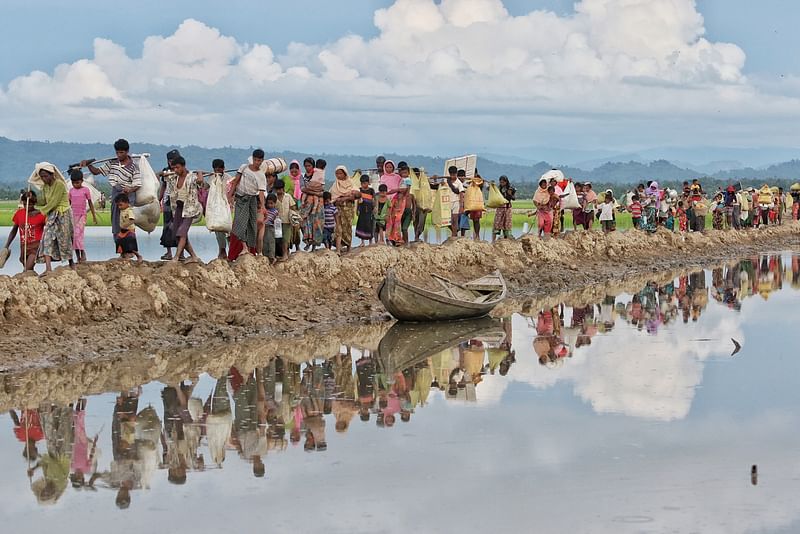Rohingyas with disabilities suffer: HRW

New York-based Human Rights Watch has reported many Rohngyas in camps in Cox's Bazar, who are living with disabilities caused by brutal attacks by Myanmar military.
"Bangladesh’s overcrowded, hilly and rain-soaked mega camp for ethnic Rohingya refugees is precarious for everyone, but especially for people with disabilities," the rights group said on Monday.
More than 700,000 people reside in the camps after fleeing the Myanmar military’s campaign of ethnic cleansing more than a year ago.
“Walking through the camps, we found large numbers of Rohingya refugees with disabilities,” Bill Frelick, refugee rights director at HRW, said in a new video. “Many of the people in the camp had acquired their disabilities from brutal attacks by Myanmar’s military.”
Despite efforts by the United Nations, humanitarian organisations, and the refugees themselves to build handrails, HRW said, many walkways are impassable for people who have difficulty walking.
Hussein Ahmad, whose 17-year-old son was shot in the neck during their escape from Myanmar and is now paralysed from the waist down, said: “I thank the doctor who gave my son a wheelchair, but I can’t use it because the roads are very dangerous and keep getting worse. It is time for my son to study, but he can’t walk, and his life is being destroyed in front of me.”
HRW observed that work to shore up the hastily and haphazardly built huts and other camp structures has been hindered by the Bangladeshi government’s insistence that the refugees are only staying temporarily and will soon return to Myanmar.
Lighting, accessible toilets, and proper walkways with handrails that are critically important for people with disabilities have been slow to develop, the HRW added.
“With such widespread misery and obvious needs for the Rohingya refugees generally, there is a risk that refugees with disabilities will be overlooked,” Frelick said. “But this is precisely the time when the needs of people with disabilities ought to be a priority.”